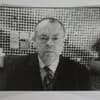Podcast
Questions and Answers
What is friction?
What is friction?
- A force that has no effect on the relative motion of solid surfaces
- A force resisting the relative motion of solid surfaces (correct)
- A force aiding the relative motion of solid surfaces
- A force that causes solid surfaces to slide easily
Which surfaces does friction act upon?
Which surfaces does friction act upon?
- Only gaseous surfaces
- Only liquid surfaces
- Only solid surfaces
- Solid surfaces, fluid layers, and material elements sliding against each other (correct)
What does friction do to the motion of material elements?
What does friction do to the motion of material elements?
- Resists their motion (correct)
- Facilitates their motion
- Has no impact on their motion
- Causes their motion to be erratic
When sound bounces off a wall, what are you hearing?
When sound bounces off a wall, what are you hearing?
What term describes the delayed repetition of sound after it reflects off a surface?
What term describes the delayed repetition of sound after it reflects off a surface?
Which phenomenon occurs when sound waves reflect off a surface and return to the listener?
Which phenomenon occurs when sound waves reflect off a surface and return to the listener?
Flashcards are hidden until you start studying
Study Notes
Friction
- A force that opposes the relative motion of two surfaces in contact
- Acts on both solid and fluid surfaces, affecting any materials touching each other
Surfaces Affected by Friction
- Present in interactions between solid surfaces, such as wood on wood or metal on metal
- Can also occur in fluid interactions, like air resistance on a moving object
Effects of Friction on Motion
- Slows down the motion of objects by converting kinetic energy into thermal energy
- Can prevent slipping, allowing for controlled movement across surfaces
Sound Reflection
- When sound waves bounce off a wall, the reflected waves create the perception of sound reaching the listener again
- This event produces an echo, which is the sound one hears after the initial sound travels back
Echo
- Describes the delayed repetition of sound after it reflects off a surface
- Caused by the time it takes for sound waves to travel to a surface and back to the listener
Sound Wave Reflection Phenomenon
- Echoing occurs when sound waves reflect off surfaces, returning to the origin
- It often enhances the auditory experience in large spaces like concert halls, creating rich auditory effects
Studying That Suits You
Use AI to generate personalized quizzes and flashcards to suit your learning preferences.





